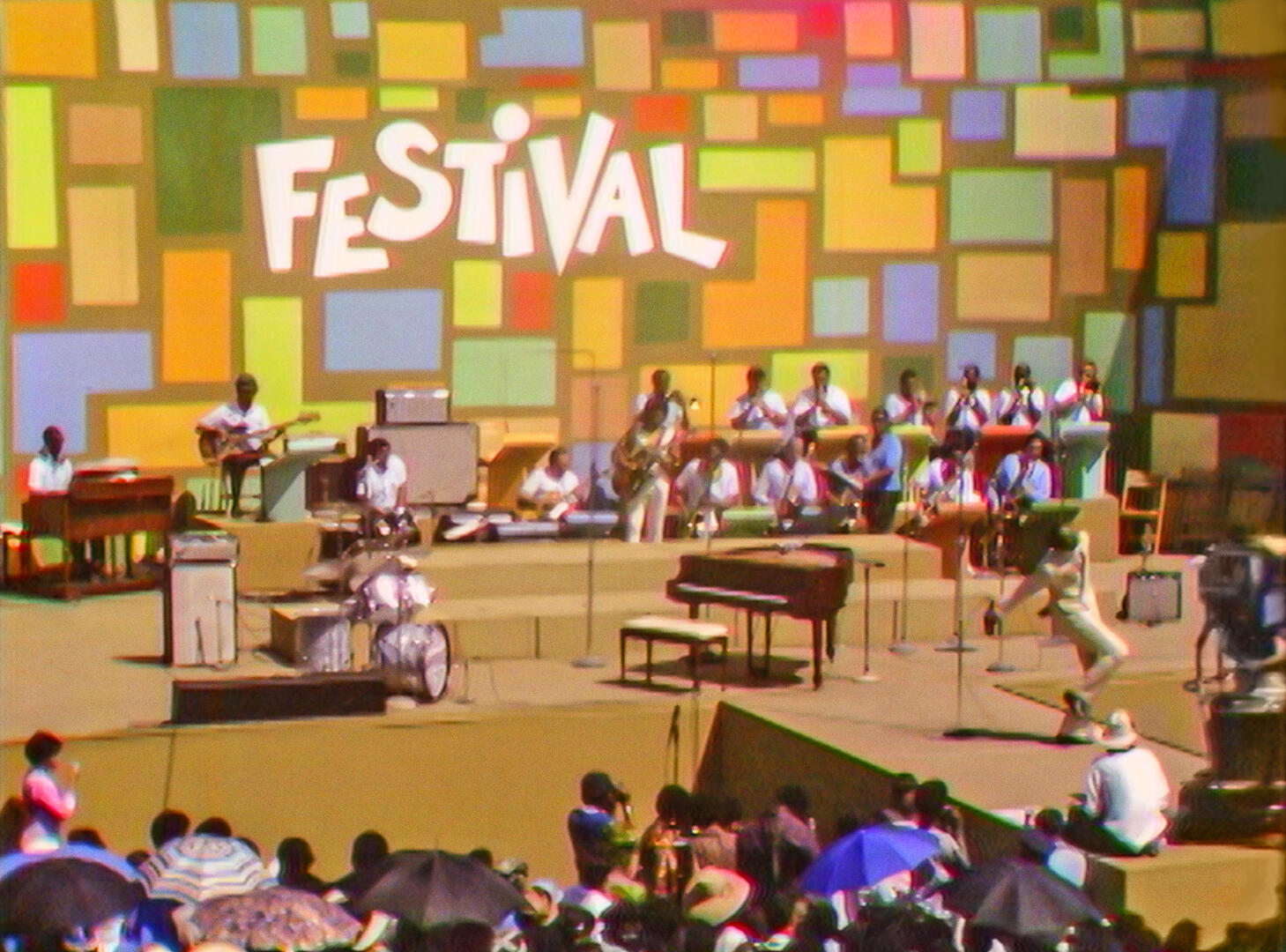Woodstock. Even the name inspires all sorts of music fans and baby boomers to swoon nostalgically for all the amazing talent on display at what might be the greatest music festival of all time. But Roots’ drummer Questlove is here with another thesis. Woodstock not only might not be the best festival of all time, might only not be the best music festival of 1969, but might not even be the best festival of that summer!
That designation would go to the Harlem Cultural Festival of 1969. Held in Mount Morris Park, this festival pulled in nearly as equally impressive a musical lineup as Woodstock (Stevie Wonder, Gladys Knight & the Pips, Nina Simone, Sly and the Family Stone). Heaps of footage of this festival went unused in a basement for years, eventually landing in Questlove’s hands, where the talented director explains why this festival should have been a MUCH bigger deal culturally than just a summer fling in 69.
Having seen a barrage of musical documentaries centered around one particular performer, Summer of Soul is a wonderful change of pace, because well, all of these performers are legends at this point. So Questlove, like the great musical curator/DJ he already is, can build essentially a visual album out of the musical acts. The well-respected director actually gives us interviews with Gladys Knight, Stevie Wonder, and Mavis Staples, actual performers during the show, to describe the scene at Mount Morris Park. What’s fun about these interviews is we get a glimpse in time at each performer and where they were: Gladys was stoked to be there as her stock was on the rise, Stevie was pivoting away from his 60s material into something different, and Mahalia Jackson was in the final stage of her career, with Mavis helping her over the finish line with some of her songs.
Questlove then takes this little vignettes from the singers and makes the canvas even bigger, tying the Harlem Cultural Festival to the American cultural revolution going on at the time. At first he intersperses the music with some background on the cultural revolution that was the 60s. The big takeaway was how those movements taught African-Americans to embrace their identity and love all the unique aspects of their culture. Questlove then follows this brief history lesson with festival attendees describing their experiences there, and how this festival affirmed all those important Malcolm X and MLK lessons about cultural pride and expression. I say it that way because African-Americans weren’t only represented here: Puerto Rican, Caribbean, and even South African musical acts also happened at this fest, giving us a full picture of a place (Harlem) and its people. It wasn’t just musical expression either: Afro-centric fashion became a generational marker for the kids showing off their heritage, which Questlove weaves into his story, all building to Nina Simone’s amazing performance: a culmination of the decade before creating a perfect showcase for the perfect performer and perfect audience.
The only real downside to this fest apparently is that footage of this generational cultural milestone was left in a dark basement until very recently. That’s a real shame too, because everyone interviewed waxes poetically about the amazing time they had either performing, attending, or organizing the festival. Maybe when Beyonce and Jay-Z create their version of this festival, more people will see it and understand just how important these underrepresented voices are in the American story, a story that continues to grow and evolve in the best ways possible as we let more voices like Questlove’s add to it.

